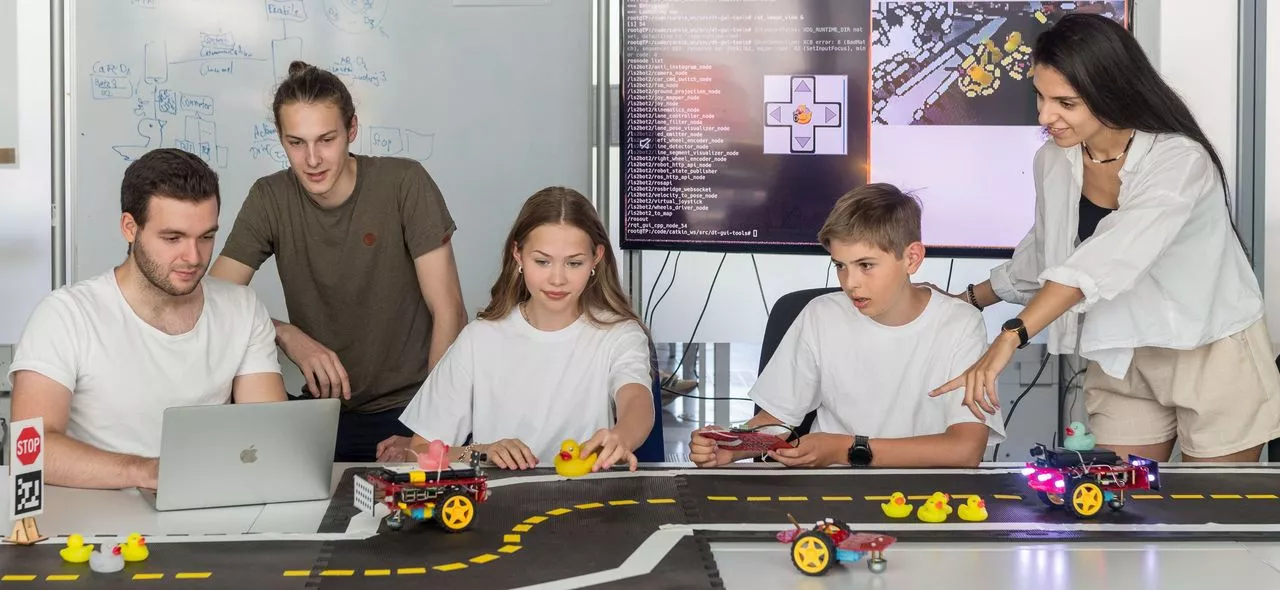Robotic
- The development of technology platforms such as "Duckietown" makes the current state of research in robotics and AI more accessible and tangible. Photo: Andreas Heddergott / TUM

Focus Areas
- Embedded systems
- Duckietown
- Autonomous Driving
- Communication
- Distributed Control
- Distributed Systems
- Learning Autonomy
- HW/SW Co-Design
Research members
Publications
In Progress
Theses
In Progress
Finished
| Student | Advisor(s) | Supervisor(s) | Title | Type | Year |
|---|---|---|---|---|---|
| Tim Sommer | Ramona Beinstingel | Prof. Dr. Stephan Krusche | Design and Development of an Ozobot Challenge to Reduce Gender Stereotypes in STEM Education | Bachelor's Theses | 06/2025 - 11/2025 |
| Annika Lena Heckin-Veltman | Maximilian Anzinger | Prof. Dr. Stephan Krusche | Atlas: Evaluating Adaptive Learning from Student's Perspective | Master's Theses | 04/2025 - 09/2025 |
| Arda Karaman and Ufuk Yagmur | Maximilian Anzinger | Prof. Dr. Stephan Krusche | Enhancing Competency Models Through Machine Learning Techniques | Master's Theses | 02/2025 - 08/2025 |
| Konrad Gößmann | Maximilian Anzinger | Prof. Dr. Stephan Krusche | Crafting Personalized Learning: Developing Dynamic Learner Profiles | Bachelor's Theses | 10/2024 - 02/2025 |
| Ege Dogu Kaya | Ramona Beinstingel | Prof. Dr. Stephan Krusche | UI/UX Improvement of the Artemis Student View | Bachelor's Theses | 05/2024 - 09/2024 |
| Ege Kurt | Ramona Beinstingel | Prof. Dr. Stephan Krusche | Communication Enhancement For Improved Learning in Artemis | Bachelor's Theses | 04/2024 - 08/2024 |
